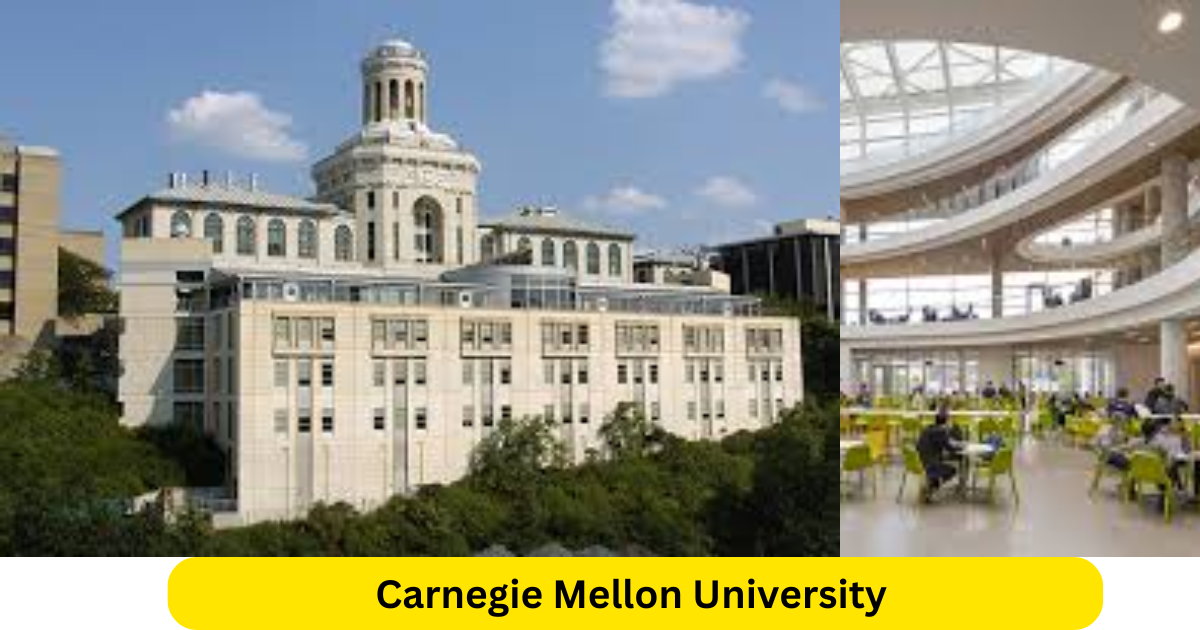Carnegie Mellon University: A Nexus of Innovation and Academic Excellence
Carnegie Mellon University (CMU) is a renowned private research university located in Pittsburgh, Pennsylvania. Known for its pioneering work in computer science, engineering, and the arts, CMU consistently ranks among the top universities globally. This article delves into the history, academic programs, notable alumni, and the significant impact of Carnegie Mellon University on education and innovation, as well as details on its competitive acceptance rate.
A Brief History of Carnegie Mellon University
Founded in 1900 by industrialist and philanthropist Andrew Carnegie, Carnegie Mellon University was originally established as the Carnegie Technical Schools. It evolved into the Carnegie Institute of Technology in 1912 and merged with the Mellon Institute of Industrial Research in 1967, forming Carnegie Mellon University.
Key Milestones in CMU’s History
- 1900: Andrew Carnegie founds the Carnegie Technical Schools.
- 1912: The institution becomes the Carnegie Institute of Technology.
- 1967: Merger with the Mellon Institute forms Carnegie Mellon University.
- 1988: The School of Computer Science is established, becoming a leader in the field.
Academic Excellence
Carnegie Mellon University is distinguished for its rigorous academic programs, world-class faculty, and interdisciplinary approach to education. The university offers a diverse range of programs across various fields, fostering innovation and creativity.
Undergraduate Education
CMU’s undergraduate programs are designed to provide a solid foundation in both theory and practice, encouraging students to explore interdisciplinary connections. Key features include:
- College of Engineering: Known for its innovative programs in mechanical, electrical, and civil engineering.
- School of Computer Science: Offering top-ranked programs in artificial intelligence, robotics, and software engineering.
- College of Fine Arts: Renowned for its programs in drama, music, and design, fostering creativity and artistic expression.
Graduate and Professional Education
Carnegie Mellon’s graduate programs are highly esteemed, offering advanced degrees across a wide range of disciplines. Notable schools and departments include:
- Tepper School of Business: Known for its MBA programs and research in economics and management.
- Heinz College of Information Systems and Public Policy: Focusing on public policy, information technology, and management.
- College of Humanities and Social Sciences: Providing interdisciplinary education and research in areas such as psychology, philosophy, and social sciences.
Research and Innovation
CMU is at the forefront of research and innovation, with numerous research centers and institutes contributing significantly to advancements in various fields. Key research areas include:
- Artificial Intelligence and Robotics: Leading research in AI, machine learning, and robotics, contributing to significant technological advancements.
- Cybersecurity and Data Privacy: Pioneering work in protecting digital information and securing online environments.
- Sustainable Energy and Environment: Addressing global challenges related to energy, environment, and sustainability through innovative research.
Notable Alumni
Carnegie Mellon University has produced a remarkable array of alumni who have made significant contributions to society in various fields. Some of the most notable include:
- Andy Warhol: Iconic artist and leading figure in the pop art movement.
- James Gosling: Creator of the Java programming language.
- Holly Hunter: Acclaimed actress and Academy Award winner.
Global Impact and Influence
The influence of Carnegie Mellon extends far beyond its Pittsburgh campus, impacting global education, technology, and policy through its collaborative efforts and outreach programs.
Collaborations and Partnerships
CMU actively collaborates with institutions worldwide to address global challenges and promote academic exchange. These partnerships include joint research initiatives, exchange programs, and international conferences.
Public Service and Outreach
Carnegie Mellon is deeply committed to public service and community engagement. The university’s outreach programs aim to make a positive impact on society. Notable examples include:
- The Robotics Institute: Conducting pioneering research in robotics and collaborating with industries and governments globally.
- CMU-Africa: Offering graduate programs in Kigali, Rwanda, to address Africa’s pressing technology and development challenges.
Acceptance Rate and Admission Process
Gaining admission to Carnegie Mellon University is highly competitive, with an acceptance rate typically around 15%. Prospective students must demonstrate exceptional academic achievements, strong extracurricular involvement, and a compelling personal narrative.
Key Admission Requirements
- High School Transcript: Reflecting academic excellence in a rigorous course load.
- Standardized Test Scores: CMU has adopted a test-optional policy for recent admissions cycles, but strong SAT or ACT scores can enhance an application.
- Extracurricular Activities: Demonstrating leadership, community service, and other significant involvements.
- Personal Essays: Offering insights into the applicant’s personality, values, and aspirations.
- Letters of Recommendation: Providing valuable perspectives from teachers, counselors, or mentors.
Conclusion
Carnegie Mellon University stands as a beacon of academic rigor, innovation, and creativity. Its rich history, distinguished academic programs, and influential alumni make it a cornerstone of higher education and research. As the university continues to evolve, its commitment to fostering a culture of excellence and inquiry remains unwavering.
